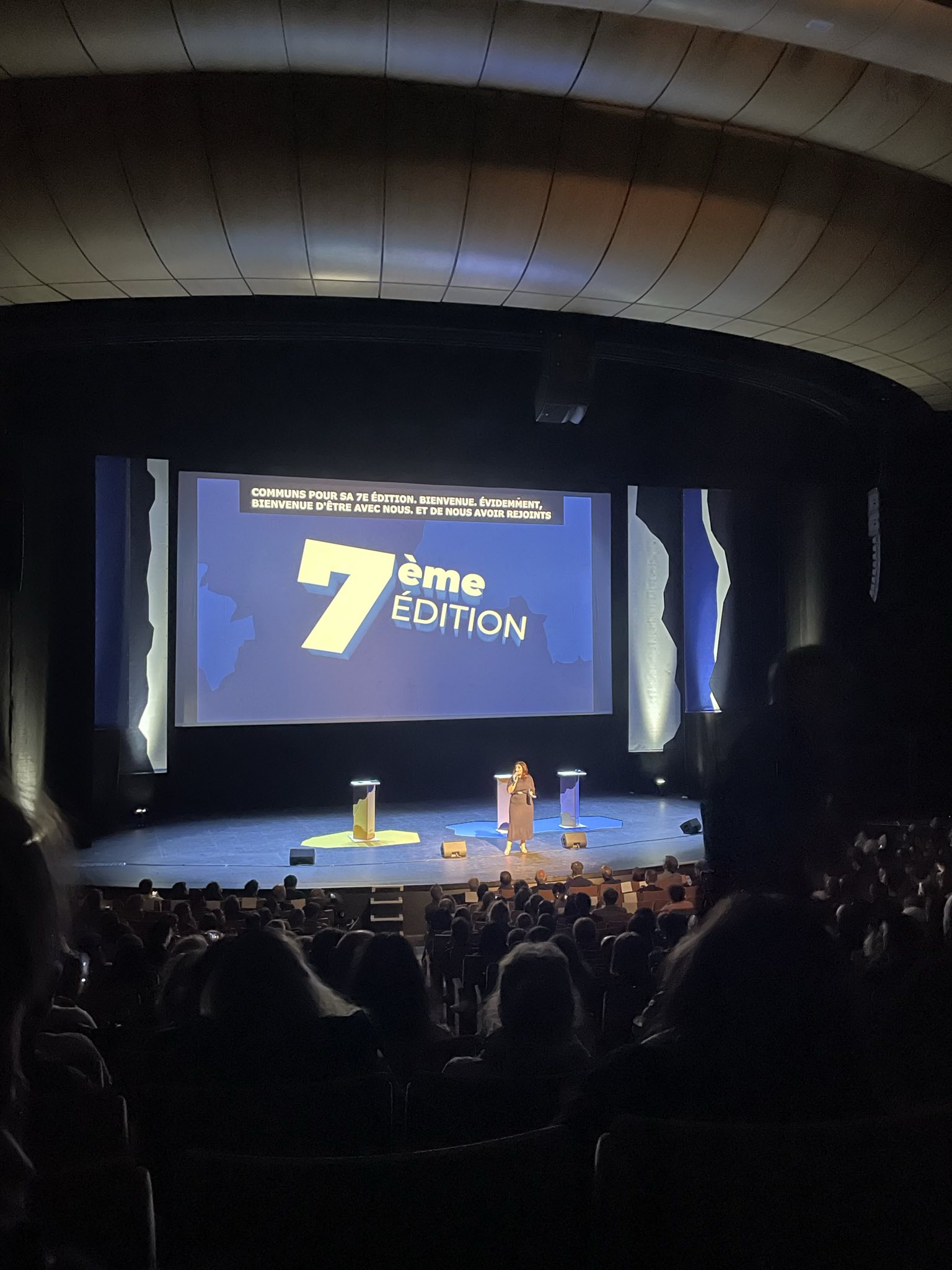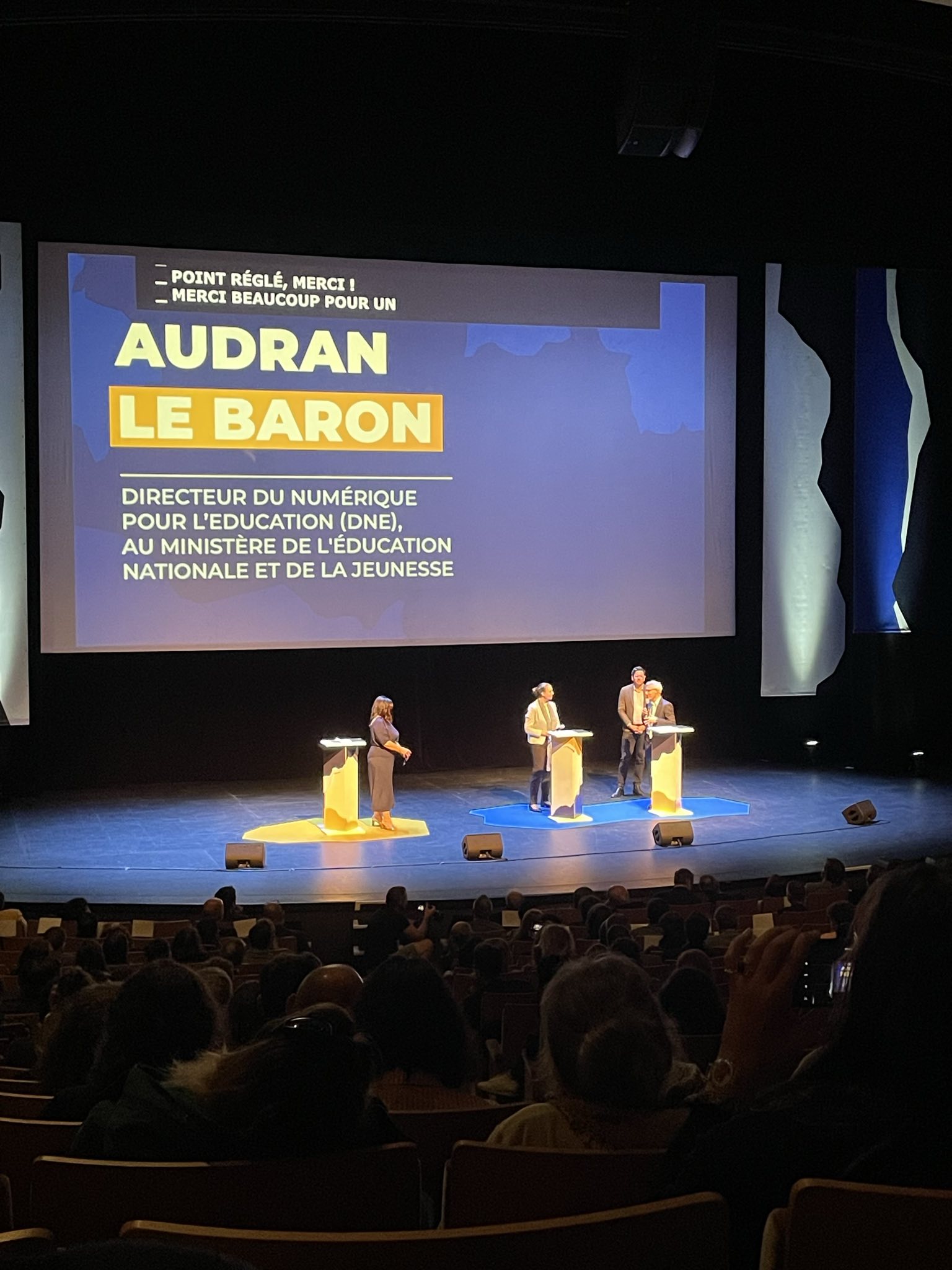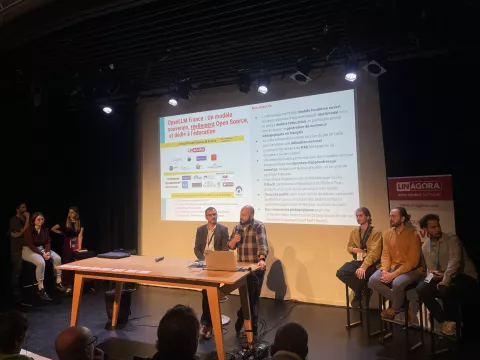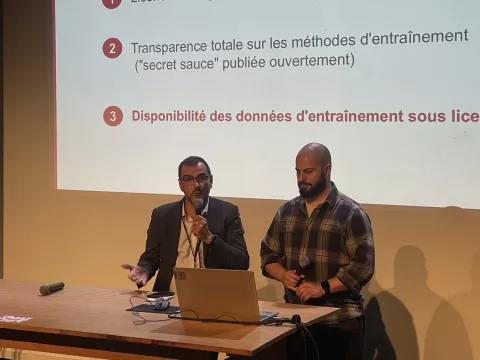
NEC 2024
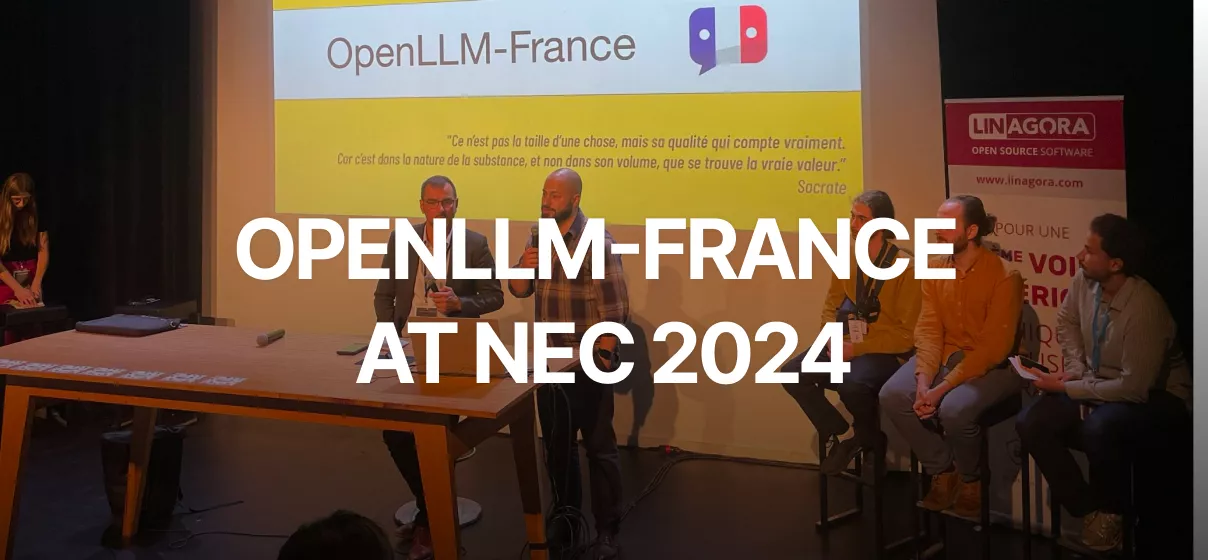
A look back at the speech given by Michel-Marie Maudet, Managing Director and Co-Founder of LINAGORA, who initiated the creation of the OpenLLM France community, at the 7ᵉ edition of the Numérique en Commun (NEC) in Chambéry. NEC is ‘THE’ must-attend meeting for all digital stakeholders around key topics such as digital inclusion, data sovereignty, digital ecology and digital commons. The aim is to promote a more inclusive, sustainable and ethical digital world.
Two very rich and intense days of parallel workshops, masterclasses, round tables and plenary sessions, bringing together more than 300 speakers from the digital industry, elected representatives and local authorities, researchers and associations to reflect on the challenges of digital technology in our territories. An inspiring programme devised by the Institut National de l'Information Géographique et Forestière, the Direction Interministérielle du Numérique, the Conseil National du Numérique, the Ministry of Education, the Autorité de Régulation de la Communication Audiovisuelle et Numérique, the Agence de la Transition Écologique, OpenData France and the Banque des Territoires.
Organised by the City of Chambéry, the Agence Nationale de la Cohésion des Territoires and Hub Hinaura, with the support of the Département de Haut de Savoie, the event took place at a number of key venues in Chambéry (Centre de Congrès, Espace Malraux), providing participants with a ‘playground’ for debate and discussion on the future of digital technology.
At the end of these two exceptional days, our CEO was joined by Bastien Masse, Managing Director of the ClassCode Association, for a one-hour presentation on six fun resources for learning about AI, including the work of the OpenLLM France community.
OpenLLM community
The Open LLM France community now has over 800 members from a wide range of backgrounds (academic research, industry, AI and Open Source enthusiasts, etc.), who work together on a daily basis to develop a brand new 100% Open Source generative AI model. The aim of this community is to build a true digital commons, of general interest, at the service of society. At LINAGORA and within the OpenLLM community, we are convinced that it is necessary to re-train a new AI model, despite the existence of many models already available. One of the major problems currently encountered with existing models is the source of the data. We frequently find inappropriate or biased results, also known as hallucinations, which do not reflect reality and highlight a security flaw. Michel-Marie insists on the importance of the quality of the training data sets in order to guarantee, or at least optimise, the performance of the AIs and thus meet specific needs, such as education, for example.
« All the models you practice, you don't know the data that was used for training.» - Michel-Marie MAUDET
LUCIE, the 100% Open Source 1ᵉʳ LLM
LUCIE is a model built from scratch, with the aim of making its operation and training data accessible, so that any biases in the data can be identified and corrected.
« The challenge for OpenLLM France is to build a foundation model, from scratch, dedicated to education, that is also effective in the French language, and that can be made available to techies, teachers and students. »
Bastien Masse
To address these issues, the OpenLLM community is planning to create the very first 100% Open Source LLM model, called Lucie. A model whose training data will be freely accessible and audited. The aim is to guarantee total transparency, unlike other so-called ‘Open Source’ models which do not provide this complete openness. The model is licensed under the APACHE B2 licence, allowing free and open use, and is based on quality data rather than large quantities, in order to make the model more compact and usable on lightweight infrastructures such as a telephone.
Michel-Marie Maudet explains:
" The aim of this project is to build what we call a truly open source model [...] and make it accessible to the general public, particularly for scientific outreach purposes.".
This model, which is currently being trained, represents a real opportunity for the entire digital ecosystem, since it will be possible to test and specialise it on concrete use cases. It will be made available to the general public, and a webinar is scheduled for 5pm on 23 October to present the details, architecture and training data used.
Webinar link: https://onstage.linagora.com/b/mic-duh-u9b-egp
The outlook for education
The sovereign generative AI model developed by the Open LLM France community has numerous prospects for education. Teachers will be able to use this model to create free educational resources tailored to the needs of their pupils. Students will also be able to use this model to develop their AI and programming skills.
Michel-Marie MAUDET has announced that he will be giving an initial overview of this use case in the form of a workshop to be held at EDUCATEC, where participants will be able to try out and test the model live.
He adds:
"Our aim is also to organise workshops at EDUCATECH, this time in ‘real life’."
The challenge is to enable teachers, students and researchers to use this model openly, transparently and in compliance with RGPD requirements (particularly with regard to students and minors). This model could also be used locally on accessible machines, such as those in schools.
A key feature will be RAG (Retrieval-Augmented Generation), which enables specific documents to be submitted to queries, so that the AI can generate responses by taking into account precise educational references. The idea is to provide a French and sovereign alternative to current tools such as ChatGPT or OpenAI, while respecting criteria of transparency and sovereignty.
